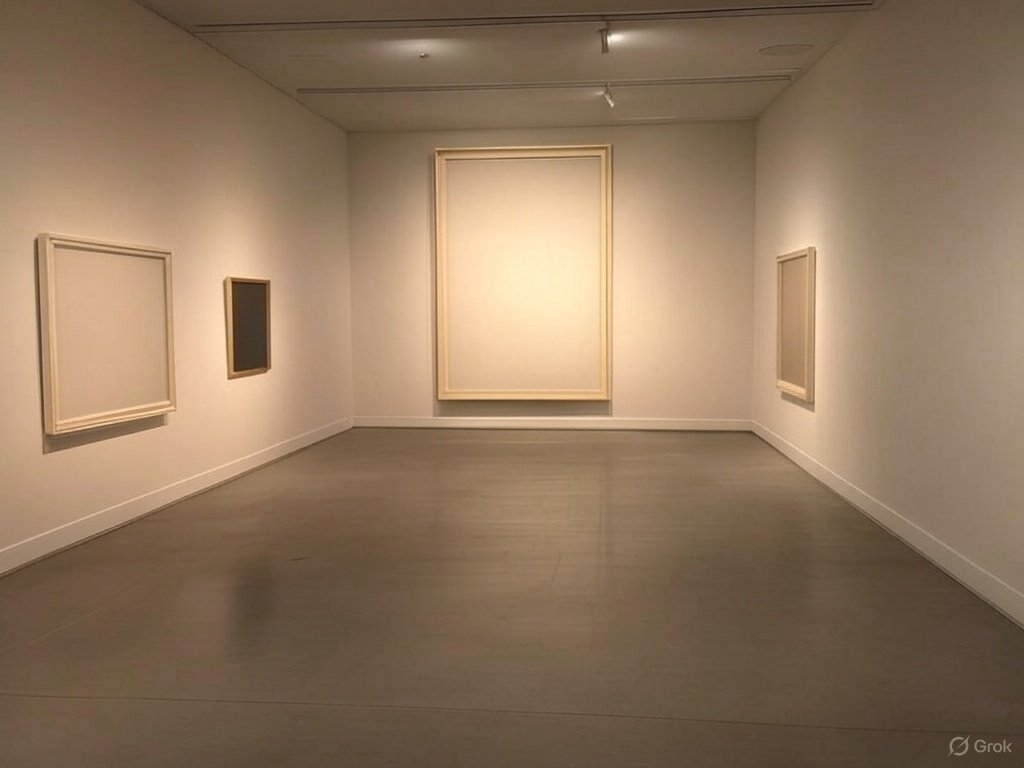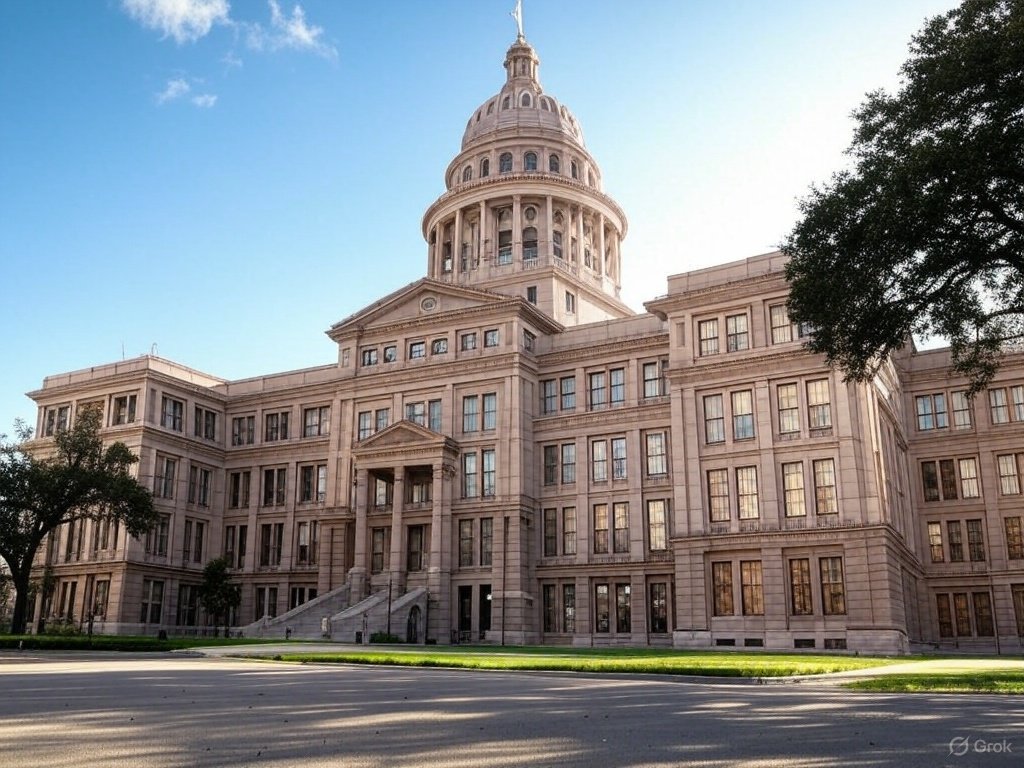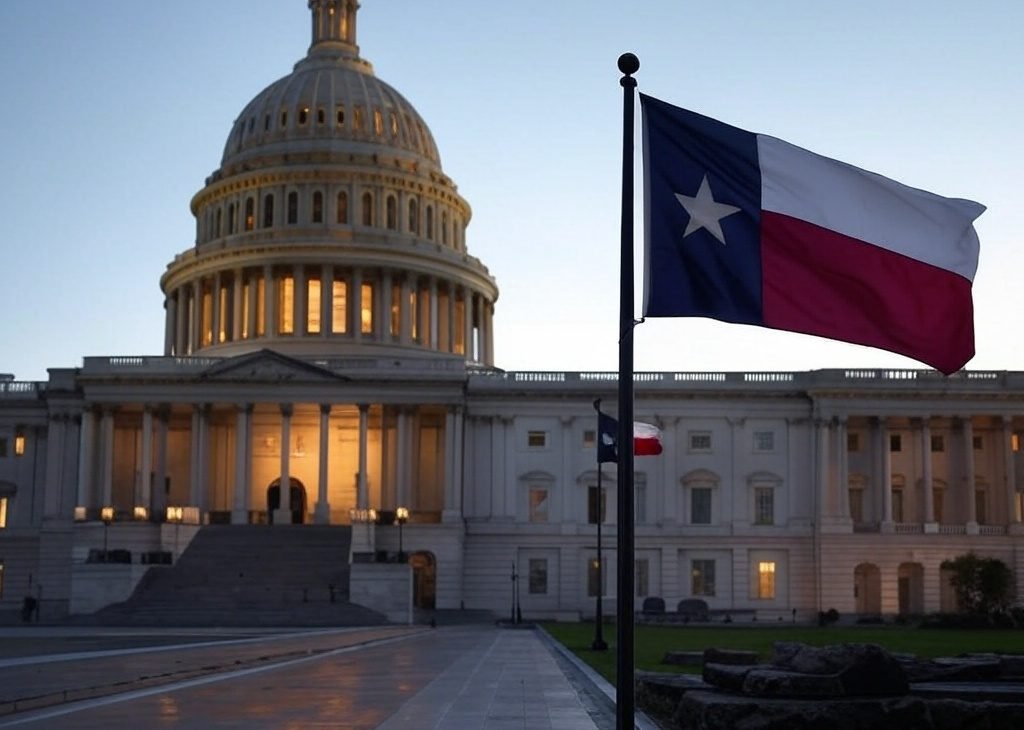Texas College Art Exhibit Sparks Controversy Amid Free Speech Debate
In a climate increasingly fraught with political tension and debate surrounding free speech, the University of North Texas (UNT) recently found itself at the center of a heated controversy. Following complaints from state Republican lawmakers regarding a pro-Palestinian art exhibit, students opted to remove part of their display two days prior to its scheduled conclusion. This incident raises significant questions about the intersection of artistic expression, political discourse, and the evolving landscape of free speech on college campuses.
Background of the Art Exhibit
The exhibit, titled “Perceptions: Observations & Reflections of the Western Muslim,” featured a variety of artworks created by students Dania Bayan and Fatima Kubra. Among the pieces was one that included Hebrew writing stating, “The murder of people = genocide.” This particular artwork became a flashpoint for criticism from several state Republican lawmakers, who perceived it as inflammatory and potentially antisemitic.
State Representative Mitch Little, along with four other Republican representatives, sent a letter to UNT officials demanding the removal of the exhibit. In his correspondence, he expressed concern over the potential violation of federal antidiscrimination laws and referenced Governor Greg Abbott’s executive order aimed at addressing antisemitism within Texas’s higher education institutions.
The Reaction from Lawmakers
Little’s letter highlighted the complexities of free speech in academia, stating, “While we understand it is the mission of the University of North Texas to keep its students informed of geopolitical issues and create an environment where free speech can thrive, you surely appreciate that this framing is not only inflammatory, but factually false with regard to the allegation of ‘genocide.’” He further emphasized the need for universities to balance the presentation of various viewpoints, arguing that Stockdale’s upcoming lecture titled “Palestinian Children and the Politics of Genocide” was misrepresenting the situation in Israel and Gaza.
Little’s concerns were echoed by others in the Texas Legislature, who have been increasingly vocal about what they view as a rise in politically charged rhetoric on college campuses. They argue that universities should take a stand against what they perceive to be divisive or harmful speech, especially when it pertains to sensitive subjects like the Israeli-Palestinian conflict.
Impact on Free Speech and Academic Freedom
The removal of the artwork brings to light a broader issue regarding the state of free speech in academic environments. Historically, conservatives have championed free expression, but recent developments suggest a growing interest in regulating speech in the name of protecting certain communities. As tensions escalate in the wake of the Israel-Hamas war, the debate over what constitutes acceptable discourse has become increasingly polarized.
Students at UNT and other Texas universities have been actively protesting for Palestinian rights, often leading to significant demonstrations and unrest. Many students have called for their institutions to divest from companies that support military actions against Gaza, reflecting a passionate commitment to political activism among the student body. However, such protests have also led to calls for disciplinary actions against students involved, highlighting the contentious nature of these debates.
The Legislative Response
In response to the ongoing tensions, Texas lawmakers have proposed legislation that would require universities to adopt the state’s definition of antisemitism when considering disciplinary action. This definition aligns with the International Holocaust Remembrance Alliance’s guidelines, which some free speech advocates argue could unfairly stifle political speech that critiques the actions of the Israeli government.
In stark contrast to previous legislation passed in 2019 that reinforced free speech rights on college campuses, these proposed measures could impose new restrictions on how universities handle controversial topics. Critics argue that this legislative shift could lead to an environment where dissenting voices are silenced and academic freedom is compromised.
University Response and Ongoing Dialogue
In light of the controversy, UNT’s chief marketing and communications officer, Steve Moore, confirmed that the students chose to take their artwork down early, though they decided to keep the rest of the exhibit intact until its official end date. The students involved declined to provide further comments, opting instead to allow their work to speak for itself.
As the debate continues, the university has not issued a definitive response regarding the status of Stockdale’s upcoming lecture. The discussion surrounding her perspectives on Israel and Palestine remains contentious, with calls for a more balanced representation of viewpoints in academic discourse.
The Broader Implications for College Campuses
The events at UNT reflect a growing trend across campuses nationwide, where the balance between free speech and the potential for discriminatory rhetoric is increasingly scrutinized. As college students engage with complex geopolitical issues, the role of educators and administrators becomes critical in fostering an environment conducive to open dialogue.
As Alex Morey, vice president of campus advocacy at the Foundation for Individual Rights and Expression, stated, “All that’s going to do is send out a bat signal to others who might want to impose their own brand of censorship.” Morey advocates for a careful consideration of how legislative actions may affect the landscape of expression on campuses, urging institutions to resist succumbing to political pressure.
Conclusion
The controversy surrounding the pro-Palestinian exhibit at UNT underscores the complexities of free speech in an academic context, especially regarding contentious political issues. As lawmakers push for greater oversight of speech on college campuses, the need for a nuanced approach to free expression becomes increasingly clear. Balancing the rights of students to express their views—no matter how polarizing—with the imperative to maintain an inclusive and respectful academic environment remains a critical challenge. As these debates evolve, it is essential for universities to cultivate spaces where diverse perspectives can coexist and thrive, ensuring that free speech is preserved without sacrificing the values of inclusivity and respect.






